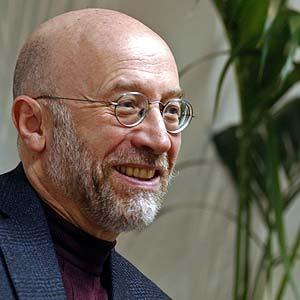Tony Judt died in 2010. He was brave and true to himself to the end. I miss that voice, so I got his book Thinking the Twentieth Century, with Timothy Snyder (2012). Here’s what Judt had to say about New York Times columnists David Brooks and Tom Friedman, and other pro-Iraq war intellectuals back in 2003. Judt reports that he was on Charlie Rose with Brooks and when he challenged Brooks about the effectiveness of international agencies to resolve the Kosovo crisis and by extension the Iraq crisis, Brooks said “I don’t really know anything about that.”
Here we had the public intellectual who now occupies not only prominent television space but also op-ed pages of the most influential newspapers in the English-speaking world: and he knows nothing.
Men like Brooks know, literally, nothing. So I encountered in those troubled months a combination of catastrophic acquiescence in authority and plain, old-fashioned dumb ignorance masquerading as commentary. These were the circumstances which allowed a criminal political action to be pushed through the public space with very little opposition.
Something else to remember, though, is that the people who did know something just rolled over. I’m thinking of Michael Ignatieff, or David Remnick, or Leon Wieseltier, or Michael Walzer. Instead of asking questions, they all behaved as though the only function of the intellectual was to provide justification for the actions of non-intellectuals. And I just remember being profoundly shocked and also feeling very lonely. Not that I felt comfortable with the isolationists either…
Brooks is an interesting case because it’s all done with mirrors–there is no expertise. The apparent expertise consists of the capacity to talk glibly each week about any public event in a way that readers have gotten used to as a sort of enlightened commentary. Thomas Friedman, another prominent contemporary “expert,” trades on a slightly different notion of expertise. Notice that pretty much every Friedman column includes a reference to som famous person he’s spoken to. So he makes explicit the notion that your expertise is a function of your contacts… It doesn’t really matter, actually, who it is. It’s the notion of access to something special.
In Friedman’s case, access to information is very carefully recalibrated as the acceptable middle ground on any given policy issue. And Friedman’s position on the Iraq War was contemptible. Not only did he run along with everyone else, but he actually probably slightly misread the tea leaves and ran along a little too fast on the anti-French, anti-European thing. It was Friedman who ran a column that said that France should be kicked out of the U.N. Security Council for having the chutzpah to oppose the United States on such an important issue.
More to come!



I am enjoying my new subscription to the NY Times, especially its op-eds. I can read classics like this:
Vote France Off the Island
By THOMAS L. FRIEDMAN
Published: February 9, 2003
Sometimes I wish that the five permanent members of the U.N. Security Council could be chosen like the starting five for the N.B.A. All-Star team — with a vote by the fans. If so, I would certainly vote France off the Council and replace it with India. Then the perm-five would be Russia, China, India, Britain and the United States. That’s more like it.
…
Most of France’s energy is devoted to holding America back from acting alone, not holding Saddam Hussein’s feet to the fire to comply with the U.N.
The French position is utterly incoherent. The inspections have not worked yet, says Mr. de Villepin, because Saddam has not fully cooperated, and, therefore, we should triple the number of inspectors. But the inspections have failed not because of a shortage of inspectors. They have failed because of a shortage of compliance on Saddam’s part, as the French know. The way you get that compliance out of a thug like Saddam is not by tripling the inspectors, but by tripling the threat that if he does not comply he will be faced with a U.N.-approved war.
And here is Brooks in his latest Haaretz interview:
Clearly he is approaching his parenting from the perspective of an Israeli parent, as if he were in fact an Israeli parent.
Thanks for reminding me about Judt. I’ll probably read that book when studies permit.
One minor observation though: I was disappointed to see Judt brandish all and everyone who wasn’t a neocon an “isolationist”. That’s the kind mentality that has led to precisely the sheepishness that he laments in your quote.
Because if anyone who opposed Iraq was an “isolationist” – and we all know that WWII is always brought up in context of that smear – what good can you do to prevent it from happening, either in the moment or in the future?
It’s also interesting to see that Judt preferred to skip the Jewish question. Maybe he gets to it later in the book. Everyone but Ignatieff was Jewish on his list of people. Judt didn’t strike me as milquetoast on these issues. But maybe he didn’t feel the need to point it out, rather just picking a heavily-Jewish list for his readers to understand his own disappointment with how his group behaved.
Timothy Snyder has very much disappointed me by taking sides for the coup government in Kiev. In his recent historical work, he has also very much played down the contemptible (fascistic, pro-Nazi, anti-Semitic, and genocidal towards the Poles) behavior of the progenitors of the present right-wing forces in Ukraine.
It must be fun to be a big mucky-muck pundit in US media, babbling BS about Israel and the US relationship with it–all the while knowing nobody important enough to be put on the first page, so to speak, will berate your ignorance and bias.